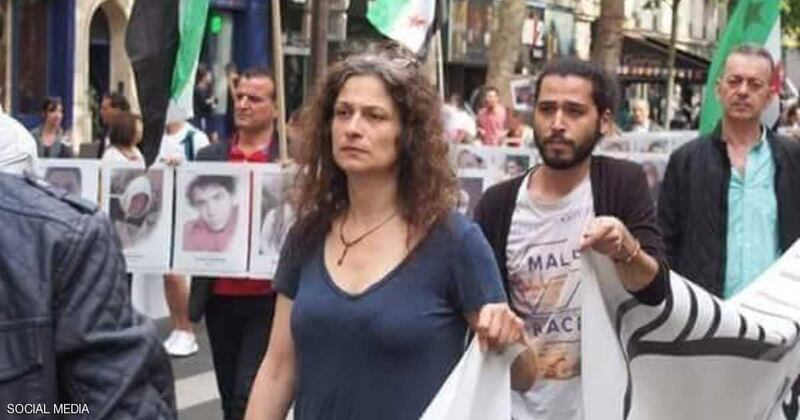No sooner had some Syrian activists announced the death of Syrian actress Mai Skaf, social media networks started buzzing with the words "icon of the revolution" and "farewell oh you free soul".
The 49-year-old actress, known for her uncompromising support to the Syrian uprising since its early days in 2011, died in France where she has been living since 2013. She died in exile, away from her home, her family and many of her friends.
In one of her last public appearances, Ms Skaf told her fans “I will not lose hope”, in reference to her desire for a democratic Syria, something she always called for unequivocally.
Ms Skaf, who studied French literature in Damascus university, is considered by large numbers of anti-regime pro-democracy activists as a popular voice for a Syria that is united in its differences, rather than disjointed by them.
_______________
Read more:
Mai Skaf, prominent face of the Syrian revolution, dies
[ Cultural offensive: on an English road trip with Syria’s artists, activists and exiles ]
_______________
Early reports indicate the cause of death was possibly a heart attack, although her family and friends have not confirmed anything yet. As I skimmed through tens of statuses by Ms Skaf's followers and admirers, the words of Elisabeth Alexander from a piece in The New York Times on July 21 about refugees and alienation rang in my ears: "Sustained strain can break the heart."
Ms Alexander was explaining the anxiety that ended up killing her late husband. “People who walk to freedom often carry that strain for the rest of their lives, invisible but every-present.”
That idea, the strain that I and millions of Syrians carry within, kept nagging at me last night, before I woke up in the morning to the news about our new loss, Ms Skaf’s departure. I wondered about the capacity of a human heart to bear pain and loss.
I revisited stories of people who were immensely resilient in the face of what seemed to me insurmountable sadness. I asked myself what would be the breaking point for an average human heart, what is the threshold of pain beyond which it would rather let go of life than continue to carry the pain?
The answer came this morning, with the death of a Syrian woman who embodied strength and refused to succumb to loss and pressure. If this Syrian uprising has produced one figure about whom people were not divided, it must be Mai Skaf.
With her defiant eyes and wild hair, Mai was exactly how I imagine a free human being: her personal and political choices were no other than hers. She embraced the values she believed in and carried them against the odds around her and into the dark waters into which the Syrian uprising had sailed.
In one of her last appearances on TV, she seemed nervous and tired but determined. She called her fellow Syrian citizens to keep the hope alive, and called on Syrians to work on establishing working public institutions and fair laws, where people could democratically elect their president.
She combined these traits that one person rarely brings together – the power of dreams, the strength of principles, and the energy and imagination to translate them into realistic proposals that can be implemented.
And maybe one day they will. She was certain they would. Honoring her memory and carrying the hopes she had forward might be the heritage she left us with which we can lessen our own pain, increase the capacity of our hearts to cope with loss and leave a space still for hope.





